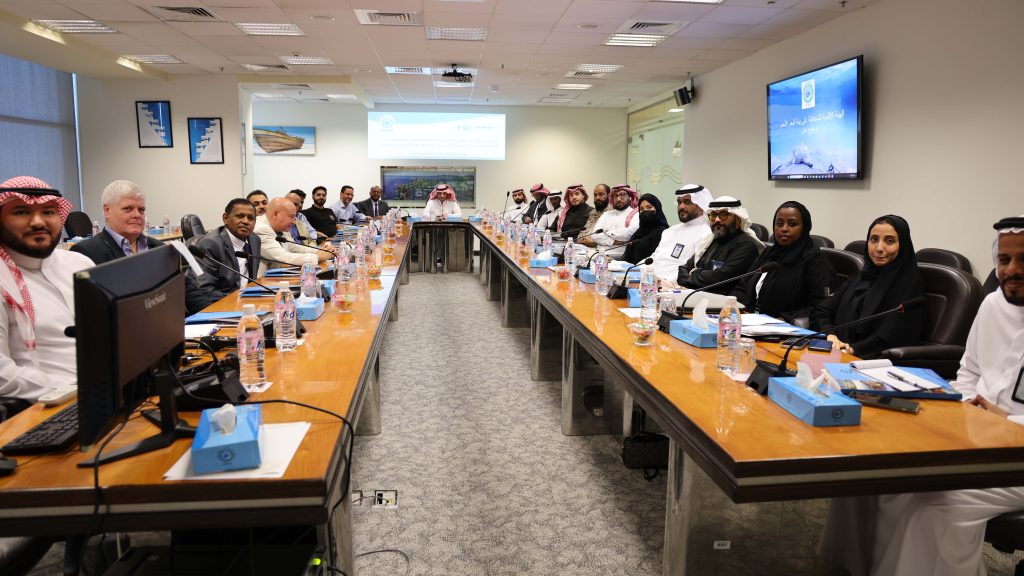Within the framework of conducting an assessment study on the maritime spills risk involving Hazardous and Noxious substances (HNS) transported by sea in the region and as part of the SFISH project, there was a proposal to conduct a mission on delivering a national workshop to present the project’s overview and tasks to the national stakeholders in Saudi Arabia.
In this respect, the Regional Organization for the Conservation of the Environment of the Red Sea and Gulf of Aden (PERSGA) in cooperation with the Ministry of Environment, Water and Agriculture of Saudi Arabia, organized a two-day awareness raising national workshop on assessing the chemical spills risks involving HNS transported by sea in the region. The workshop was conducted at PERSGA Headquarters in Jeddah, Saudi Arabia from 30 to 31 January 2024.The workshop aimed at training local responders and environmental specialists on HNS spill response strategies as well as on the preparedness and incident management aspects of HNS spill response. In addition, assistance in analyzing the current status of HNS spills preparedness in the kingdom was provided via questionnaire with the view to discuss national priorities for update of national and response capacity which is being currently under preparation.
During his opening speech, the Secretary General of PERSGA reminded participants and set the tone on the importance of a well-rehearsed preparedness and response mechanisms that are needed to ensure prompt action to minimize the impact of a maritime oil and HNS spill. To be effective this includes an alerting and response system, resources, trained and exercised personnel and an updated contingency plan. These requirements are prescribed in both the OPRC Convention and the OPRC-HNS Protocol to the Convention. He also stressed that the response to oil pollution requires a certain level of expertise and resources. The response to HNS pollution shares many of these skills and resources but requires a higher degree of personnel protection, assessment instruments and response equipment and techniques. Both responses require careful planning and response systems. An integrated oil and HNS contingency plan build on these shared systems. In order to simplify our general response, it is often better to extend our current oil pollution contingency plans to also address the challenges of HNS.
The sessions of this workshop included technical presentations. More specifically, the training materials delivered consisted of followings topics:
- SFISH project’ overview and the HNS project’s tasks and timesheets
- The EMARSGA center modeling capabilities: OilMap & CheMMap modeling tools
- Introduction to HNS Response
- Chemical Substances & Their Properties
- HNS transportation at sea.
- HNS response preparedness
- Response strategies at sea during chemical spills
- HNS Case studies and Histories
The training materials package were delivered by an international facilitator with significant experience in HNS spill management, in addition to expert from PERSGA.
Moreover, the participants were provided with updates on the efforts made by the Regional Organization (PERSGA) to provide technical support to PERSGA States in order to facilitate regional cooperation for prompt and effective response to major marine incidents in the region that could have detrimental impacts to the marine ecosystems as well as national economies.
The Workshop was attended by about 20 Officials from different national agencies responsible for the conservation of the environment as well as specialists of other relevant stakeholders such as the navy, Ports and transport authorities and private sectors dealing with the pollution responses and planning.
At the end, PERSGA provided all relevant documents of the training workshop to all the participants. Based on the workshop results and participants feedbacks, the national training workshop was highly successful and met its overall objectives.

